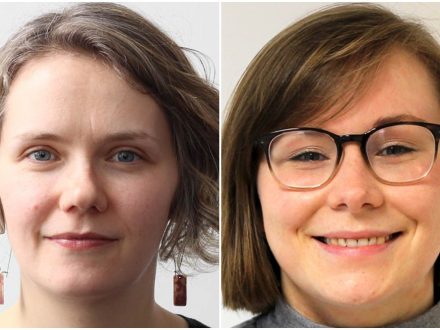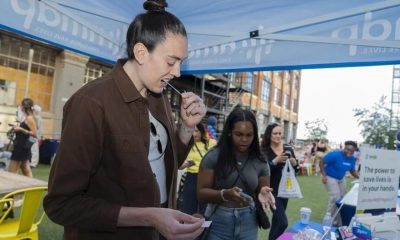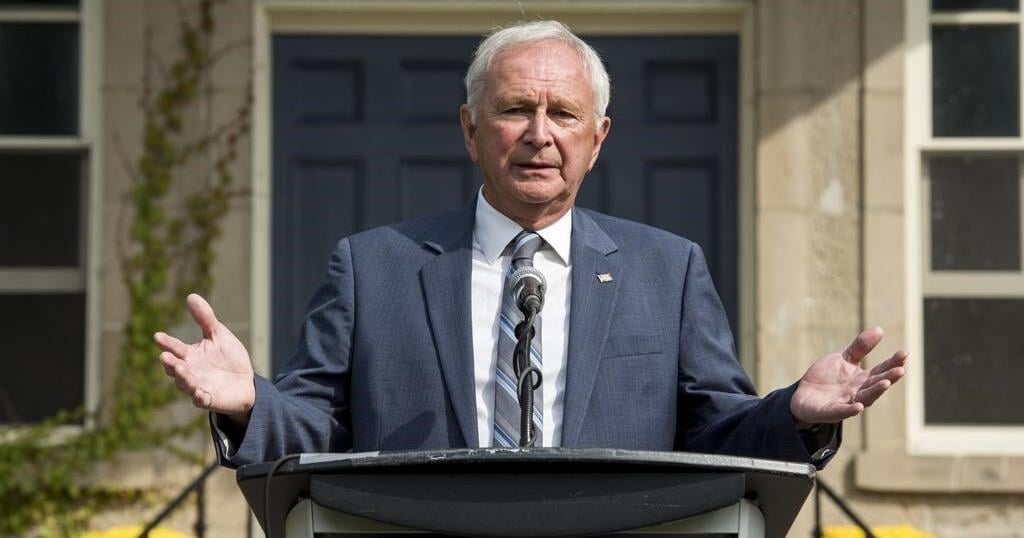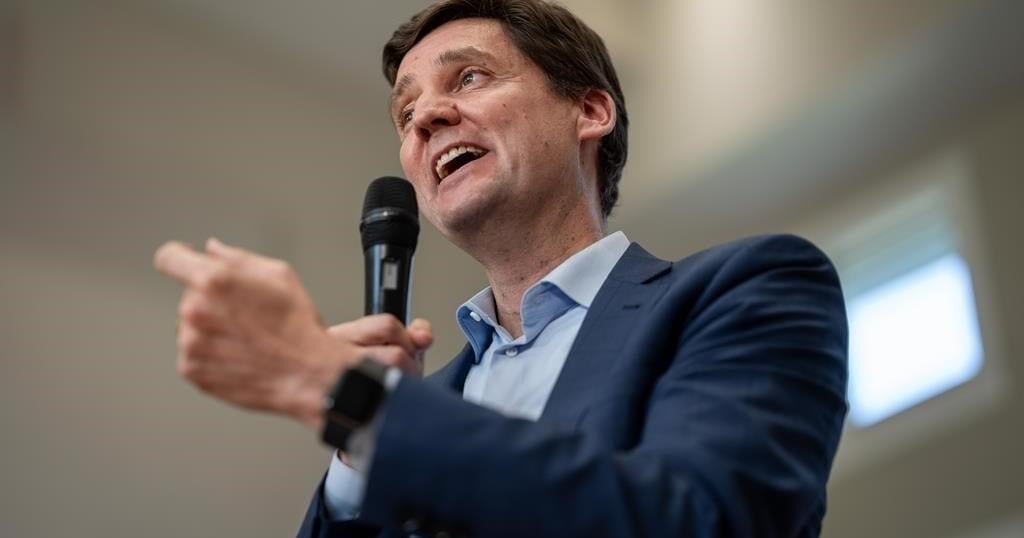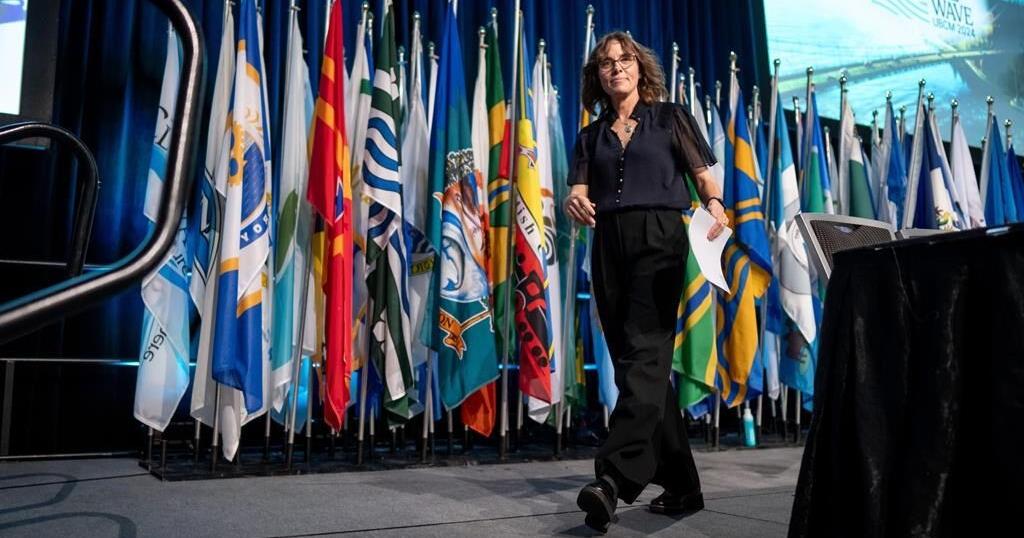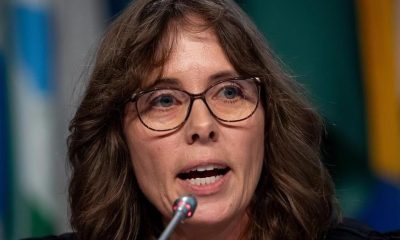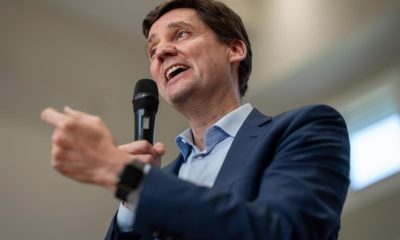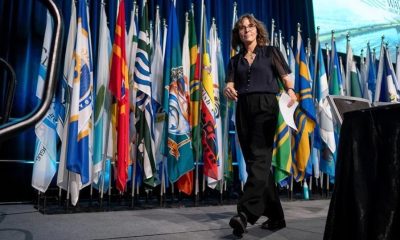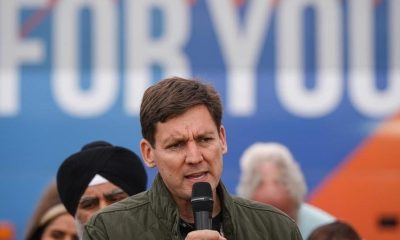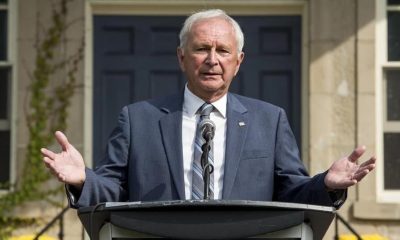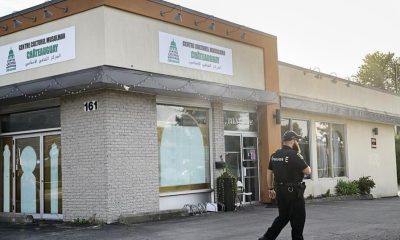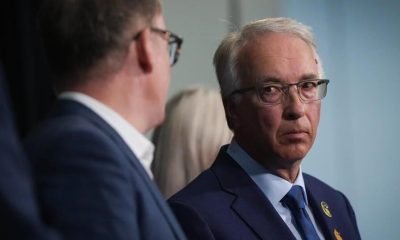FREDERICTON – New Brunswick‘s Progressive Conservative leader disrespected the province’s residents by presenting the death of a Liberal supporter as funny, the party said as it called for Blaine Higgs to apologize.
Higgs drew the party’s ire during remarks made at his Thursday campaign kickoff event in Quispamsis, N.B., held hours after he dissolved the legislature and officially triggered the campaign leading up to the Oct. 21 provincial election.
His speech to party faithful included a second-hand anecdote of a conversation that purportedly took place in 2014 between a party volunteer canvassing for votes and a newly minted supporter. At the time, Higgs was seeking re-election as the legislature member for the Quispamsis riding, which he has represented since 2010.
The conversation, the story went, began when the canvasser was leaving the home of a woman who had just voiced her intention to vote for Higgs.
“(The volunteer) said: ‘Thank you very much. That’s great.’ Then she started walking next door, and the lady said: ‘Oh, you don’t need to go there. She passed away a few weeks ago,'” Higgs said in his retelling of the story. “This campaigner — you know, very passionate individual — said: ‘I’m so sorry. Was she sick long? Or what happened? And the lady just said, ‘Oh, don’t feel too bad. She was a Liberal.'”
“I know that’s not an appropriate joke, but it was funny and it is true,” Higgs concluded.
Hannah Fulton Johnston, executive director of the New Brunswick Liberal Association, condemned Higgs’s anecdote in a statement issued on Friday in which she called the joke distasteful.
“The New Brunswick Liberal Association is calling on Blaine Higgs to apologize for this comment,” it reads.
“Making light of the death of any New Brunswicker is highly inappropriate for anyone and completely unacceptable for the premier of the province.”
Green Party Leader David Coon described the anecdote as disgusting and questioned whether the comment could be passed off as a joke.
“It’s a very dark comment,” he said on Friday.
Higgs, 70, has so far stuck to broadly populist messages as he seeks a third term as New Brunswick’s premier. His key issues so far have included bringing down the harmonized sales tax from 15 to 13 per cent and requiring teachers to get parental consent before they can use the preferred names and pronouns of young students in class.
When asked about the Liberals’ request for an apology, Progressive Conservative Party Executive Director Doug Williams shifted the focus back to past remarks from Liberal Leader Susan Holt and tried to draw a parallel between her and her unpopular federal counterpart.
“If Susan Holt is truly concerned about offensive comments, will she apologize for saying that concerns of parents about their children are ‘BS’? … Will she apologize for saying the Premier acts like a fascist?” the statement reads.
“The media have not paid any attention to these remarks, despite Progressive Conservatives raising them publicly. Just like Justin Trudeau, Susan Holt wants apologies for things that other people have done, and never wants to apologize for her own actions.”
This report by The Canadian Press was first published Sept. 21, 2024.

